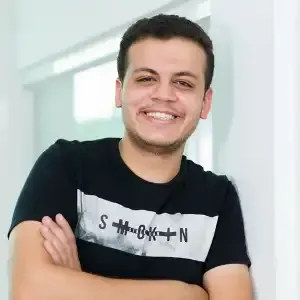






The Wave Clinic - Young Adults
Verified Center
This provider's information has been quality-checked by Recovery.com's Research Team for accuracy and completeness, including center verification through appropriate third-party organizations.
Treatment Focus
This center treats mental health conditions and co-occurring substance use. You receive collaborative, individualized treatment that addresses both issues for whole-person healing.
Primary Level of Care
Offering intensive care with 24/7 monitoring, residential treatment is typically 30 days and can cover multiple levels of care. Length can range from 14 to 90 days typically.
Treatment Focus
This center treats mental health conditions and co-occurring substance use. You receive collaborative, individualized treatment that addresses both issues for whole-person healing.
Primary Level of Care
Offering intensive care with 24/7 monitoring, residential treatment is typically 30 days and can cover multiple levels of care. Length can range from 14 to 90 days typically.
Private Pay
You pay directly for treatment out of pocket. This approach can offer enhanced privacy and flexibility, without involving insurance. Exact costs vary based on program and length of stay. Contact the center for specific details.
The Wave Clinic - Young Adults
The Wave Clinic - Young Adults
About The Wave Clinic - Young Adults
Designed for teenagers and young adults, The Wave Clinic offers a bridge to a future filled with hope. They provide specialist treatment for trauma, eating disorders, mental health disorders, and behavioural concerns, with a minimum 12-week residential stay that gives young people the time needed for lasting change. They also offer outpatient services, and therapeutic boarding and education. Discerning families from every corner of the globe appreciate The Wave’s combination of skills for living, experiential pursuits, and mental health services.
Integrate 7 Core Elements for a Better Future
The Wave’s seven core elements provide a path to a fulfilling future. Clinical care integrates evidence-based therapies (individual, group, and family), while 24/7 medical support ensures physical and psychiatric well-being. Education remains a priority, helping clients advance academically or vocationally. Global citizenship promotes awareness, responsibility and compassion. Trauma-focused healing builds resilience and emotional regulation. Experiential activities encourage connection and growth. Thoughtful planning ensures a confident transition beyond treatment.
Move Forward as a Family
The Wave sees families as partners in treatment, offering a variety of services to provide support and help rebuild relationships. Family therapy, including sibling sessions and workshops, promotes communication and growth. After discharge, families can participate in therapy intensives or short stays as ‘top-up’ therapy if they feel the client’s progress is at risk.
Enjoy Comfort & Community
The Wave’s modern, luxurious campus is in the most prestigious area in Greater Kuala Lumpur, just a 20-minute drive from the international airport. Housed within beautifully manicured gardens with 360° panoramic terraces, their spacious suites are single or shared occupancy, all with en-suite bathrooms and permission to personalise their space. Clients enjoy art and music rooms, yoga and dance studios, a gym, rooftop terrace with cinema, and an indoor pool that is the centre of evening and weekend fun.

Highlights from the Center
Highlights
These highlights are provided by and paid for by the center.
Therapeutic Location
Mental Health Disorder Treatment
Adolescents
Eating Disorders Program
Center Overview
Treatment Focus
This center treats mental health conditions and co-occurring substance use. You receive collaborative, individualized treatment that addresses both issues for whole-person healing.
Cash Pay Rates
Estimated Cash Pay Rate
Center pricing can vary based on program and length of stay. Contact the center for more information. Recovery.com strives for price transparency so you can make an informed decision.
Luxury rehab centers offer a unique blend of luxurious amenities and high-quality treatment. From private suites to gourmet dining, personal trainers to spa treatments, these facilities provide a high level of comfort and discretion.

Meet Your Care Team

Fiona Yassin
International Clinical Director
EMDR, TF-CBT, RO-DBT, GPM, IAEDP, FREED, CBTe

Malek
Operations Director
EMDR, CBT, MBT, APPCH

Dr. Rasyid
Medical Director and Consultant Psychiatrist
MBBS

Moe
Adolescent and Family Psychotherapist (in training) and Certified Addictions Therapist
CCTS-I, ACCSA

Mahisha
Clinical Lead
Certified Clinical Trauma Professional (I & II), ACCPH

Eslam
Psychiatric Nurse

Carmen
MSc Counselling Psychology / Dietetics and Nutrition

Ash
Certified TRE Provider, Recovery Specialist in Eating Disorders and Trauma

Sharmeenee
Clinical Psychologist (Adolescent & Family)
Master of Clinical Psychology

Lophren
Creative Arts and Mental Health- Art Therapist
MSc, MBACP

Cathaline
Eating Disorder Specialist Nutritionist
MSc

Hin Wei
Trainee Dietician Eating Disorders

Yougan
Recovery Specialist
Safeguarding Children and Young Adults Practitioner (Level I, II & III)

Daniel
Medical Doctor
MD

Mr. Gan
Trauma Informed Yoga and Holistic Specialist

Din
Head Chef

Hamim
Assistant Head Chef

Ferdinand
Chef

Zakir
Lead Security

Awas
Head of Security

Chino
Pet Therapist

Margie
Pet Therapist

Buba
Pet Therapist

Loki
Pet Therapist

Cody
Pet Therapist




Levels of Care





Your Care Options
Specializations
Adolescents
Teens receive the treatment they need for mental health disorders and addiction, with the added support of educational and vocational services.
Personality Disorders
Personality disorders destabilize the way a person thinks, feels, and behaves. If untreated, they can undermine relationships and lead to severe distress.
ADHD, ADD
ADHD is a common mental health condition caused by dopamine imbalance. Common symptoms include inattention, hyperactivitiy, and impulsivity.
Anxiety
Anxiety is a common mental health condition that can include excessive worry, panic attacks, physical tension, and increased blood pressure.
Depression
Symptoms of depression may include fatigue, a sense of numbness, and loss of interest in activities. This condition can range from mild to severe.
Eating Disorders
An eating disorder is a long-term pattern of unhealthy behavior relating to food. Most people with eating disorders have a distorted self-image.
Young Adults
Emerging adults ages 18-25 receive treatment catered to the unique challenges of early adulthood, like college, risky behaviors, and vocational struggles.
Trauma
Some traumatic events are so disturbing that they cause long-term mental health problems. Those ongoing issues can also be referred to as "trauma."
Who We Treat
Adolescents
Teens receive the treatment they need for mental health disorders and addiction, with the added support of educational and vocational services.
Young Adults
Emerging adults ages 18-25 receive treatment catered to the unique challenges of early adulthood, like college, risky behaviors, and vocational struggles.
Approaches
Evidence-Based
A combination of scientifically rooted therapies and treatments make up evidence-based care, defined by their measured and proven results.
Experiential
Expressive tools and therapies help patients process past situations, learn more about themselves, and find healing through action.
Family Involvement
Providers involve family in the treatment of their loved one through family therapy, visits, or both–because addiction is a family disease.
Personalized Treatment
The specific needs, histories, and conditions of individual patients receive personalized, highly relevant care throughout their recovery journey.
Therapies
1-on-1 Counseling
Patient and therapist meet 1-on-1 to work through difficult emotions and behavioral challenges in a personal, private setting.
Trauma-Specific Therapy
This form of talk therapy addresses any childhood trauma at the root of a patient's current diagnosis.
Art Therapy
Visual art invites patients to examine the emotions within their work, focusing on the process of creativity and its gentle therapeutic power.
Dance Therapy
This experiential therapy uses dance to improve body awareness, physical health, and social skills.
Expressive Arts
Creative processes like art, writing, or dance use inner creative desires to help boost confidence, emotional growth, and initiate change.
Eye Movement Therapy (EMDR)
Lateral, guided eye movements help reduce the emotional reactions of retelling and reprocessing trauma, allowing intense feelings to dissipate.
Family Therapy
Family therapy addresses group dynamics within a family system, with a focus on improving communication and interrupting unhealthy relationship patterns.
Conditions We Treat
Schizophrenia
Schizophrenia is a serious mental health condition that causes hallucinations, delusions, and disordered thinking.
Personality Disorders
Personality disorders destabilize the way a person thinks, feels, and behaves. If untreated, they can undermine relationships and lead to severe distress.
ADHD, ADD
ADHD is a common mental health condition caused by dopamine imbalance. Common symptoms include inattention, hyperactivitiy, and impulsivity.
Anger
Although anger itself isn't a disorder, it can get out of hand. If this feeling interferes with your relationships and daily functioning, treatment can help.
Anxiety
Anxiety is a common mental health condition that can include excessive worry, panic attacks, physical tension, and increased blood pressure.
Bipolar
This mental health condition is characterized by extreme mood swings between depression, mania, and remission.
Codependency
Codependency is a pattern of emotional dependence and controlling behavior. It's most common among people with addicted loved ones.
Depression
Symptoms of depression may include fatigue, a sense of numbness, and loss of interest in activities. This condition can range from mild to severe.
Eating Disorders
An eating disorder is a long-term pattern of unhealthy behavior relating to food. Most people with eating disorders have a distorted self-image.
Substances We Treat
Co-Occurring Disorders
A person with multiple mental health diagnoses, such as addiction and depression, has co-occurring disorders also called dual diagnosis.
Languages
Aftercare
Care Designed for Your Needs
Personal Amenities
Amenities
Special Considerations
Center Pets
Addiction and mental health facilities with pets allow patients to interact with friendly dogs, cats, horses, and in some cases, even dolphins.
Young Adults Program
Programs for young adults bring teens 18+ together to discuss age-specific challenges, vocational and educational progress, and successes in treatment.
Activities
Yoga
Yoga is both a physical and spiritual practice. It includes a flow of movement, breathing techniques, and meditation.
Off-Site Activities
Off-Site Amenities
What people are saying
Treatment
4.9
Accommodations
5.0
Food & Nutrition
4.8
Value
4.6
Pros
- Cares About Client (2)
- Communicates Client's Progress (2)
- Easy to Work With (2)
- Quality Programming (2)
Sandi James
Reviewed 02/12/20
Referring Professional
•Psychologist
Ian Young
Reviewed 02/10/20
Referring Professional
•Interventionist & Sober Transporter
The Wave Clinic - Young Adults
A
Treatment in 2019 • (180+ days) • Reviewed 06/30/19
Loved One of a Former Client
•London
Sulaiman
Referring Professional






